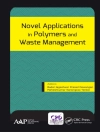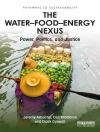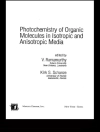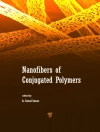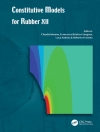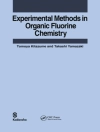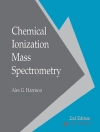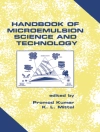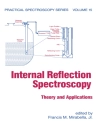The book ‘Interfaces of Ceramic-Matrix Composites’ demonstrates the definition, function and type of the interface of ceramic-matrix composites and gives comprehensive investigations on the interface design, interface characterization, interface assessment, and interface damage law of both C/Si C and Si C/Si C ceramic-matrix composites subjected to tensile and fatigue loading at different testing conditions. Thereby, it helps material designers and engineers to better design ceramic-matrix composite components for applications.
Tabella dei contenuti
Preface xi
Acknowledgments xiii
1 Definition, Function, and Design of Interface in Ceramic-Matrix Composites 1
1.1 Introduction 1
1.2 The Definition of Interface in Ceramic-Matrix Composites 2
1.2.1 Non-oxide CMCs 3
1.2.2 Oxide/Oxide CMCs 13
1.3 The Function of Interface in Ceramic-Matrix Composites 18
1.3.1 Effect of Interphase on Sliding Resistance 19
1.3.2 Effect of Interphase on Thermal Misfit Stress 19
1.4 The Design of Interface in Ceramic-Matrix Composites 20
1.4.1 Py C Interphase 20
1.4.2 BN Interphase 21
1.5 Conclusion 21
References 22
2 Interface Characterization of Ceramic-Matrix Composites 29
2.1 Introduction 29
2.2 Effect of Interface Properties on Tensile and Fatigue Behavior of Ceramic-Matrix Composites 30
2.2.1 Theoretical Analysis 31
2.2.1.1 First Matrix Cracking Stress 31
2.2.1.2 Matrix Cracking Density 31
2.2.1.3 Fatigue Hysteresis-Based Damage Parameters 32
2.2.2 Results and Discussion 33
2.2.2.1 Effect of the Interface Properties on First Matrix Cracking Stress 33
2.2.2.2 Effect of the Interface Properties on Matrix Cracking Density 36
2.2.2.3 Effect of the Interface Properties on the Fatigue Hysteresis-Based Damage Parameters 39
2.2.3 Experimental Comparisons 41
2.2.3.1 First Matrix Cracking Stress 42
2.2.3.2 Matrix Cracking Density 43
2.2.3.3 Fatigue Hysteresis-Based Damage Parameters 46
2.3 Effect of Pre-exposure on Tensile Damage and Fracture of Ceramic-Matrix Composites 51
2.3.1 Theoretical Analysis 52
2.3.1.1 Stress Analysis Considering Interface Oxidation and Fiber Failure 54
2.3.1.2 Matrix Multicracking Considering Interface Oxidation 56
2.3.1.3 Interface Debonding Considering Interface Oxidation 57
2.3.1.4 Fiber Failure Considering Interface and Fiber Oxidation 58
2.3.1.5 Tensile Stress–Strain Curves Considering Effect of Pre-exposure 59
2.3.2 Results and Discussion 60
2.3.2.1 Effect of Pre-exposure Temperature on Tensile and Damage Process 60
2.3.2.2 Effect of Pre-exposure Time on Tensile and Damage Processes 61
2.3.2.3 Effect of Interface Shear Stress on Tensile and Damage Processes 62
2.3.2.4 Effect of Fiber Strength on Tensile and Damage Processes 64
2.3.2.5 Effect of Fiber Weibull Modulus on Tensile and Damage Processes 65
2.3.3 Experimental Comparisons 66
2.4 Effect of Interface Properties on Lifetime of Ceramic-Matrix Composites 71
2.4.1 Theoretical Analysis 73
2.4.1.1 Life Prediction Model at Room Temperature 74
2.4.1.2 Life Prediction Model at Elevated Temperatures in the Oxidative Environment 77
2.4.2 Experimental Comparisons 79
2.4.2.1 Life Prediction at Room Temperature 79
2.4.2.2 Life Prediction at Elevated Temperature 89
2.5 Conclusion 100
References 103
3 Interface Assessment of Ceramic-Matrix Composites 109
3.1 Introduction 109
3.2 Relationships Between Interface Slip and Temperature Rising in CMCs 112
3.2.1 Hysteresis Theories 112
3.2.1.1 Case I 113
3.2.1.2 Case II 115
3.2.1.3 Case III 116
3.2.1.4 Case IV 117
3.2.2 Experimental Comparisons 118
3.2.2.1 Unidirectional CMCs 118
3.2.2.2 Cross-Ply CMCs 122
3.2.2.3 2D CMCs 124
3.3 Interface Assessment of CMCs from Hysteresis Loops 127
3.3.1 Results and Discussion 128
3.3.1.1 Unidirectional C/Si C Composite 129
3.3.1.2 Cross-Ply C/Si C Composite 131
3.3.1.3 2.5D C/Si C Composite 135
3.3.2 Experimental Comparisons 138
3.3.2.1 Unidirectional C/Si C Composite 138
3.3.2.2 Unidirectional Si C/CAS Composite 142
3.3.2.3 Unidirectional Si C/CAS-II Composite 144
3.3.2.4 Cross-Ply C/Si C Composite 144
3.3.2.5 2.5D C/Si C Composite 149
3.4 Conclusion 155
References 156
4 Interface Damage Law of Ceramic-Matrix Composites 161
4.1 Introduction 161
4.2 Interface Damage Law at Room Temperature 163
4.3 Interface Damage Law at Elevated Temperature in Inert Atmosphere 167
4.4 Interface Damage Law at Elevated Temperature in Air Atmosphere 172
4.4.1 1000 ∘C 172
4.4.2 1200 ∘C 175
4.4.3 1300 ∘C 178
4.5 Interface Damage Law at Elevated Temperature in Steam Atmosphere 185
4.5.1 1000 ∘C 185
4.5.2 1200 ∘C 187
4.6 Results and Discussion 192
4.6.1 Effect of Temperature, Oxidation, and Fiber Preforms on Interface Damage of CMCs 192
4.6.2 Comparisons of Interface Damage Between C/Si C and Si C/Si C Composites 193
4.7 Conclusion 195
References 196
Index 199
Circa l’autore
Longbiao Li, Ph D, is a lecturer in the College of Civil Aviation at the Nanjing University of Aeronautics and Astronautics (NUAA). His research focuses on the fatigue, damage, fracture, reliability, and durability of aircraft and aero engine. In this research area, he is the first author of 128 SCI journal publications, 2 monograph, 3 book chapters, 10 Chinese Patents, and 1 US Patent, and more than 20 refereed conference proceedings. He has been involved in different projects related to structural damage, reliability, and airworthiness design for aircraft and aero engines, supported by the Natural Science Foundation of China, COMAC Company, and AECC Commercial Aircraft Engine Company.


